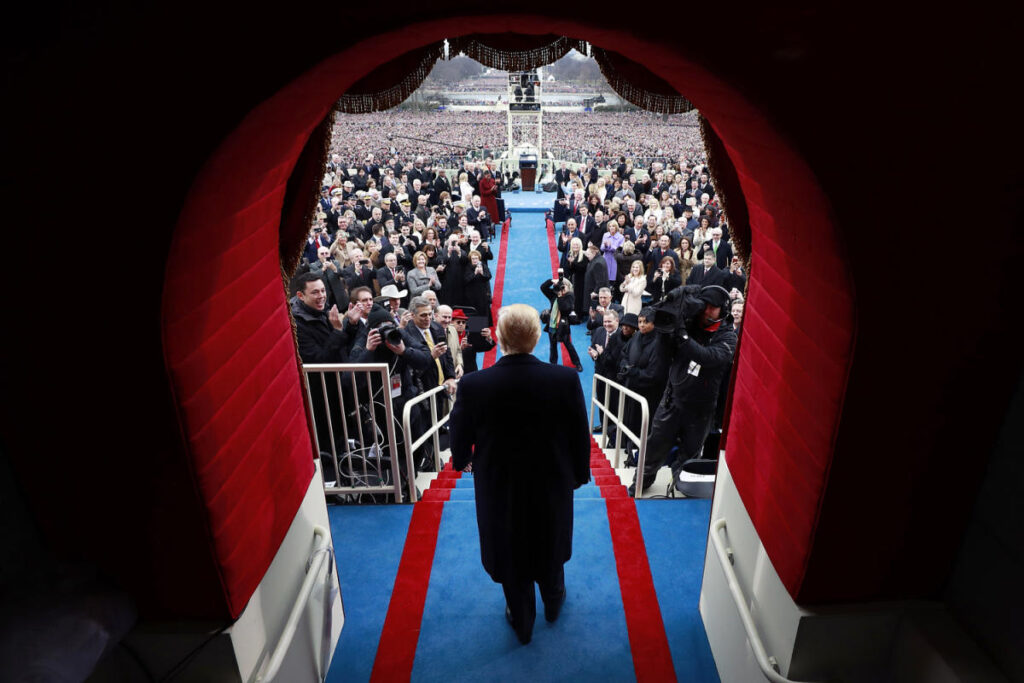In a surprising twist for his upcoming presidency, Donald Trump has declared that his inaugural address will focus on a theme of “unity,” signaling a potential shift in his political approach as he aims to redefine his image after a polarizing tenure. In an interview, Trump emphasized the importance of his message, stating, “It will make you happy: unity.” This intention raises questions about how genuine and practical this call for unity might be, especially given his history of divisive rhetoric and policy proposals. Despite the challenges, Trump acknowledges the divided state of American politics, as evidenced by his rise to power fueled by a fragmented electorate and his recent electoral successes.
At 78, Trump is unlikely to fundamentally change his approach, as he has expressed bitterness over perceived injustices from judges, prosecutors, and the media. During the interview that addressed the theme of unity, he also suggested punitive measures against those involved in the Capitol riot investigations, displaying the contentiousness that has characterized his political strategy. Steve Bannon, a former senior advisor, described the current political climate as anything but joyous, implying that Trump’s hardline stance resonates with voters feeling disenchanted with the political status quo. However, some advisors assert his sincerity in pursuing unity, claiming his latest victory provides a unique opportunity for him to bridge political divides and cement a legacy as a unifying figure in a climate of significant political exhaustion.
Notably, the recent election saw Trump garner unexpected support from traditionally Democratic voting blocs, including Hispanic and Black voters, contributing to his popular vote win for the first time. A Pew Research survey following the election indicated a more favorable perception of Trump among the electorate, suggesting that the political landscape may be shifting in a way that allows for bipartisanship. His political strategist, Dick Morris, noted Trump’s chance to capitalize on this moment to open dialogues for cooperation, while pollster John McLaughlin emphasized Trump’s businesslike demeanor, suggesting he is serious about unification. With the historical backdrop of unfulfilled aspirations for national cohesion by previous presidents, Trump’s call for unity amid rising political discontent presents both an opportunity and a challenge.
Despite these opportunities, many Americans remain skeptical. A significant portion of the populace does not believe Trump will achieve the political rapprochement he promises. Critics question whether Trump understands what unity entails; for instance, will he seek genuine compromise and cooperation with the opposition or expect rivals to conform to his agenda? Comments from political analysts suggest that Trump’s potential for unifying the nation hinges more on actions than words. A consensus exists that the American political system is currently perceived as broken, creating a fertile ground for either collaboration or further division depending on Trump’s approach.
Once inaugurated, Trump will have the chance to demonstrate his commitment to unity in his inaugural speech. Historically, presidential inaugurals have set the tone for administration priorities, with iconic speeches marking significant moments, such as Lincoln’s eloquent calls for healing in the Civil War era. In contrast, Trump’s first inaugural address was primarily noted for its bleak portrayal of America, presenting an opportunity for him to recalibrate public sentiment. Bannon has suggested a radical approach during the speech, advising Trump to confront the political establishment directly to signal a departure from traditional political norms, urging a broader engagement with a dissatisfied electorate.
Ultimately, the real test will be whether Trump can translate his rhetorical commitments to unity into effective policies that bring diverse groups together. Suggestions range from building a multi-ideological cabinet to pursuing bipartisan legislation that genuinely addresses the needs of various demographics. As past behavior indicates a propensity for divisive decision-making, many analysts remain unconvinced that Trump can foster true unity in a fractured nation, especially given his tendency to appoint polarizing figures to key positions. The challenge of meeting the high expectations surrounding his inaugural address will emerge not solely from his proclamations but rather through the substantive initiatives and collaborations he undertakes during his presidency.

